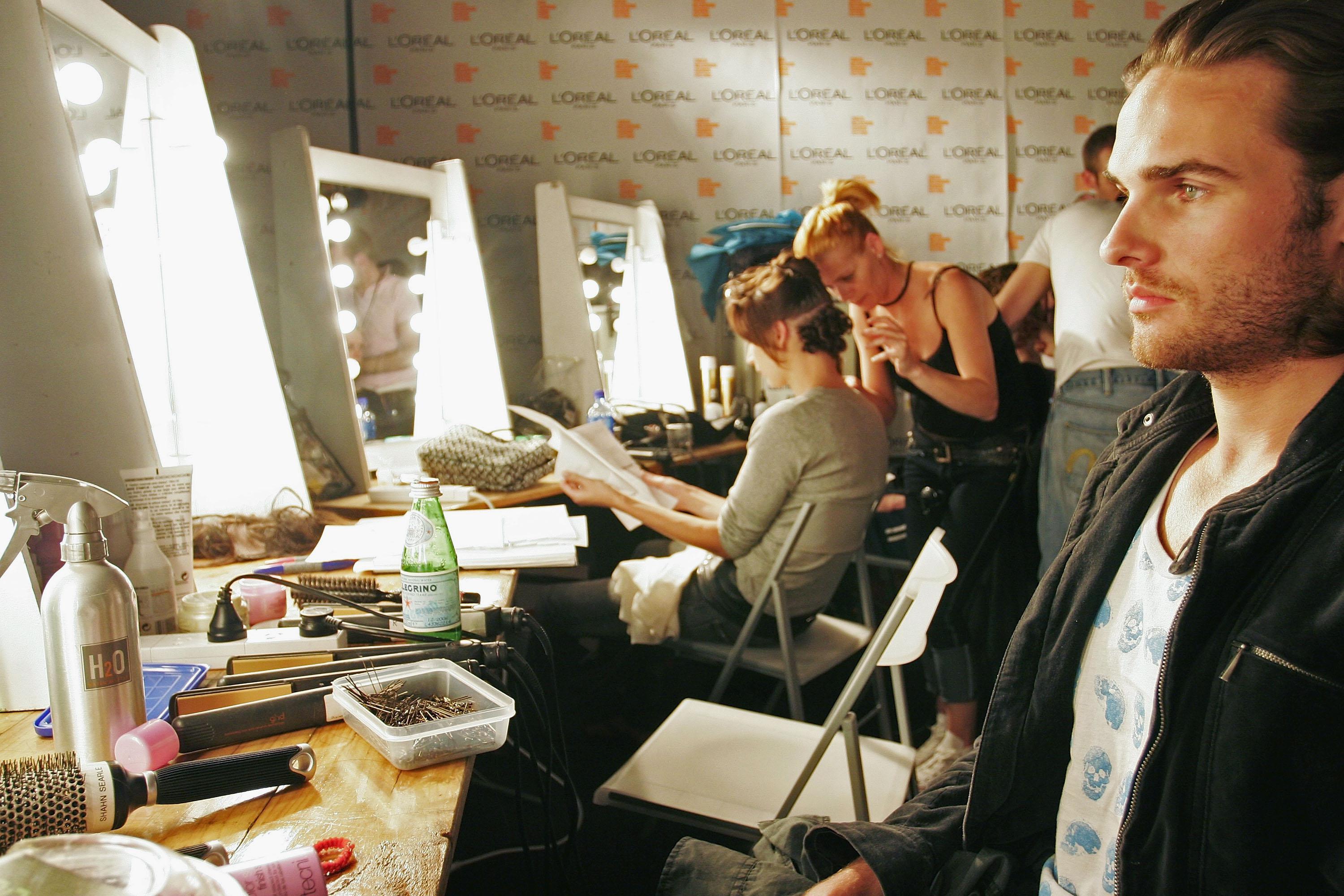I have the distinction of sitting next to an exquisitely tidy co-worker. The surface of her desk gleams like the skin of an apple (or the inside of an Apple store); a single dictionary, its binding kissing the leftmost edge of a tissue box, keeps watch over an immaculately polished laptop. Occasionally a book will materialize somewhere between the telephone and the cheerful plant in its bright green ceramic pot. The edges of this idyllic work zone are marked by a translucent partition, a kind of Great Wall beyond which the barbarian forces (me) gather. Here’s my desk:
Actually, that’s not even my desk at its worst. I recently mopped up a few of the coffee stains and carted off some of the books. But even straightened up for the camera, the area (“a disgrace to Slate,” someone once told me, half-joking, which caused me to buy actual sanitation wipes for the first and probably last time) should give you an indication of why I was excited to read a piece in the New York Times on the unsung virtues of the messy workspace.
Or at least that is one interpretation of the article, which summarizes three experiments recently published in Psychological Science by researchers from the University of Missouri. (Another takeaway is that people plopped into orderly environments are more likely to make healthful choices and donate money to charity than those hemmed in by squalor.) But what we messy deskers lack in conscientiousness and kindness we apparently make up for in freewheeling zest for the new! And, I’d argue, we have more time to look for the things we’ve inevitably misplaced because we aren’t so busy cleaning.
In the first experiment, one group of college students was asked to complete questionnaires in a cluttered, messy office. A second group received the same task but was stationed in a pristine office. When they finished after 10 minutes, the students were offered the choice of a chocolate bar or an apple. They were also given the opportunity to donate to charity. The participants who had completed the survey in a neat room were twice as likely to opt for the apple over the chocolate and also contributed more money on average. The paper’s authors suggest that the organized climes inspired a sense of discipline and ethical uprightness.
But here’s where those of us with poor moral fiber and the inability to find anything ever get our own back: College students were then ushered into spaces either immaculate or slovenly and instructed to concoct new uses for pingpong balls. Two independent judges, reviewing their ideas, concluded that the students brainstorming while surrounded by mess generated more creative proposals. So while my co-worker may make healthier choices than I do and function as a better member of society, I am theoretically better positioned to dream up novel treatments for props related to table tennis. Yes! I will never clean my desk again.
The third experiment is perhaps the most revealing in terms of how workspace tidiness affects our thought processes. In this concluding portion of the study, adults could add one of two healthy “boosts” to their lunchtime smoothie: the “classic” boost or the “new” boost. Participants who had spent time in well-kept rooms were more likely to hew to “tradition and convention,” the researchers write, by selecting the “classic” supplement; those assigned to messy rooms more often chose the “new.” Of course, maybe volunteers whose surroundings had just induced in them sad thoughts of entropy wanted a change, while those who had luxuriated in restful cleanliness were stoked for more of the same. But it seems possible that being immersed in clutter loosens up some internal mechanisms, for better or worse. (And from there it is a short hop to telling everyone how the wobbling of the precariously stacked books on your desk is a metaphor for the flexibility of your thinking.)
Indeed, according to the authors, the mental disruption inflicted by a messy space “can produce fresh insights”—about pingpong balls—but it can also relax crucial internal codes: Be nice, eat apples. So if your desk, like mine, serves as a shambolic advertisement for chaos theory, you may want to embrace 80 percent of the wreckage but also consider investing in these:
Also, do you have any chocolate?
